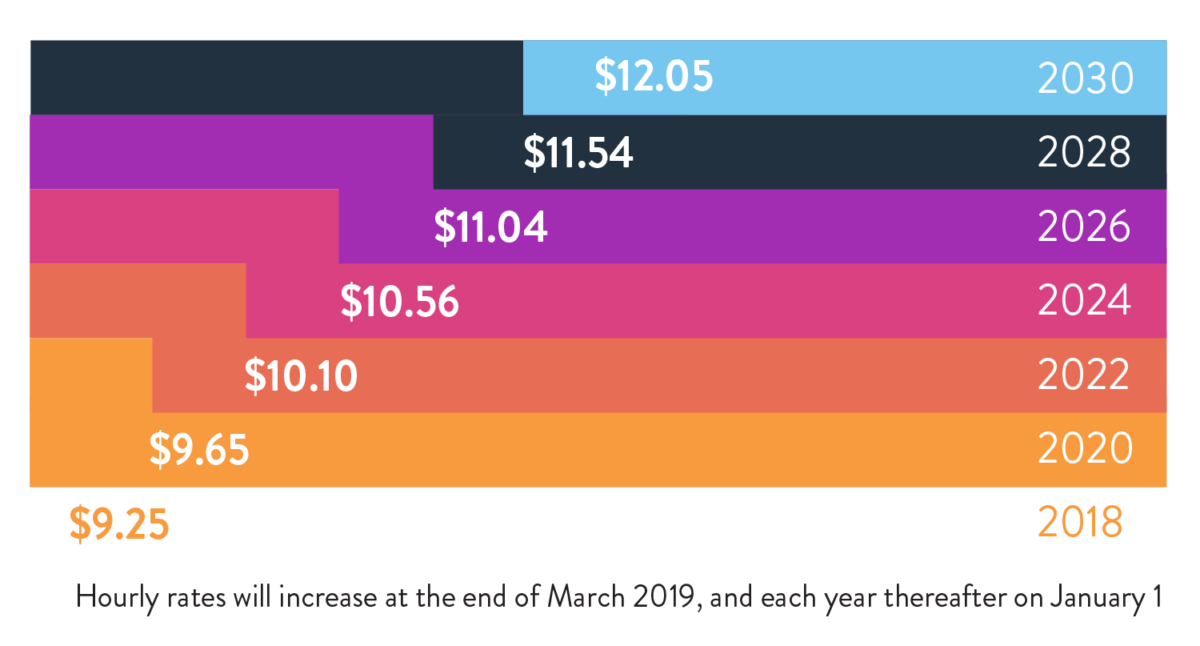Consider these facts about the December 2018 U.S. labor market:
- For the first time ever, total nonfarm employment surpassed 150 million jobs
- Employment rose by 312,000 jobs, 70% more than expected
- Manufacturing gained 284,000 jobs, 37% more than 1 year ago
- The number of temporary workers increased by more than 10,000 for the sixth consecutive month
- The labor participation rate rose to 63.1%. It’s highest since 2013
Source: US Bureau of Labor Statistics, December 2018
No wonder it’s so hard to find good people.
According to Staffing Industry Analysts (SIA) this data suggests that “the ability of the U.S. economy to draw in more workers from the sidelines and into the labor force will be a key factor in determining how long the current economic expansion can continue without interruption.” For employers, this means finding workers to sustain and grow productivity and profits will continue to be challenging, requiring new and inventive recruiting, hiring, and retention programs.
Bring on the experts.
The fast-changing processes, technology and expertise required to bring qualified new recruits off the sidelines and into interviews is intimidating to even the most resourceful HR department. Temporary staffing and outsourced recruitment solutions can lessen the blow of this super tight labor market, and bring new talent to your doorstep—quickly. Partnering with a professional recruitment organization to deliver proven new techniques and recruiting bandwidth is a business-wise option today, and experts say it will continue to be for the foreseeable future.
Origins of the Legislation
Initiated as a citizen-petitioned ballot measure, the Michigan Legislature adopted the Earned Sick Time Act as written to keep it from being placed before the voting public and as a means to modify it. Michigan is the 11th state to enact a mandatory sick-time law. After revisions that improve the legistation’s impact on employer/employee relations, Michigan’s Paid Medical Leave Act was signed into law and will take effect March 29, 2019
New Benefit Requirements
The new law impacts eligible employees at companies with 50+ employees. It will not apply to certain employee categories including exempt employees, temporary workers, private sector workers covered by a collective bargaining agreement, contractors, and certain part-time and seasonal employees.
Covered employees will accrue a minimum of 1 hour of paid sick time for every 35 hours worked, up to 40 hours annually. This time can include paid medical leave, vacation days, personal days and paid time off. The law does allow for limited carry-over of unused accrued time.
Documentation and Reporting
Employers are required to update workplace posters to include information regarding the Paid Medical Leave Act. In addition, employers are required to retain records documenting the hours worked and paid medical leave taken by eligible employees.
The final law requires employees to comply with their employer’s standard sick time notification policies and states that an employee should be given up to three days to provide documentation to support their need for leave.
Leave can be taken in increments of 1 hour, unless the employer has a different policy that is communicated through an employee handbook.
Workplace and Administration Implications
The new paid sick time law takes effect in Michigan on March 29, 2019. To prepare for compliance, employers should review their existing time-off policies for sick time, vacation time, and personal time, and assure that minimum requirements are met and procedures are fully communicated to any employee group that is impacted. In addition, verbiage may need to be added to specify that PTO includes paid medical leave.
This FAQ document from the Michigan Chamber of Commerce is a useful reference to help you understand the new law.
Next Steps
This legislation covers EG’s sick time policies for our corporate team, but it does NOT impact our team of temporary workers. Our current PTO policies comply with this legislation and no changes to our policies for our team of temporary workers are planned. EG’s Human Resource leadership team and our legal advisors continually monitor legislation such as this to assure full compliance. When changes are necessary, we will share our updated benefits and reporting processes with you – our employer partners, our corporate employees, and our contingent workforce; making sure each individual knows what new legislation means to them.
Contact EG to discuss this or any matter relating to human resources or candidate recruiting issues. info@eg-us.com
Origins of the Legislation
On September 5, 2018, the Michigan legislature adopted a ballot proposal concerning minimum wage in the State of Michigan. The proposal was amended and signed into law December 4, 2018.
Impact of the New Law
-
Michigan’s minimum hourly wage rate increases from
$9.25 to $9.45 beginning March 29, 2019 -
Additional annual increases will be implemented until 2030
-
Wage discrimination is expressly prohibited
-
Minimum wage rate for tipped workers also increases
-
Defines penalties for violation of the act
Minimum Wage Comparison
Michigan has one of the highest minimum wage rates in the Midwest, outpacing Indiana ($7.25), Illinois ($8.25), Ohio ($8.10) and Wisconsin ($7.25).
Impact on Tipped Workers
The new law requires that tipped employees make at least the minimum wage. If their tips plus the tipped employee minimum wage does not equal or exceed the regular minimum wage, the employer must pay any shortfall to the employee.
Contact EG to discuss this or any matter relating to human resources or candidate recruiting issues. info@eg-us.com



